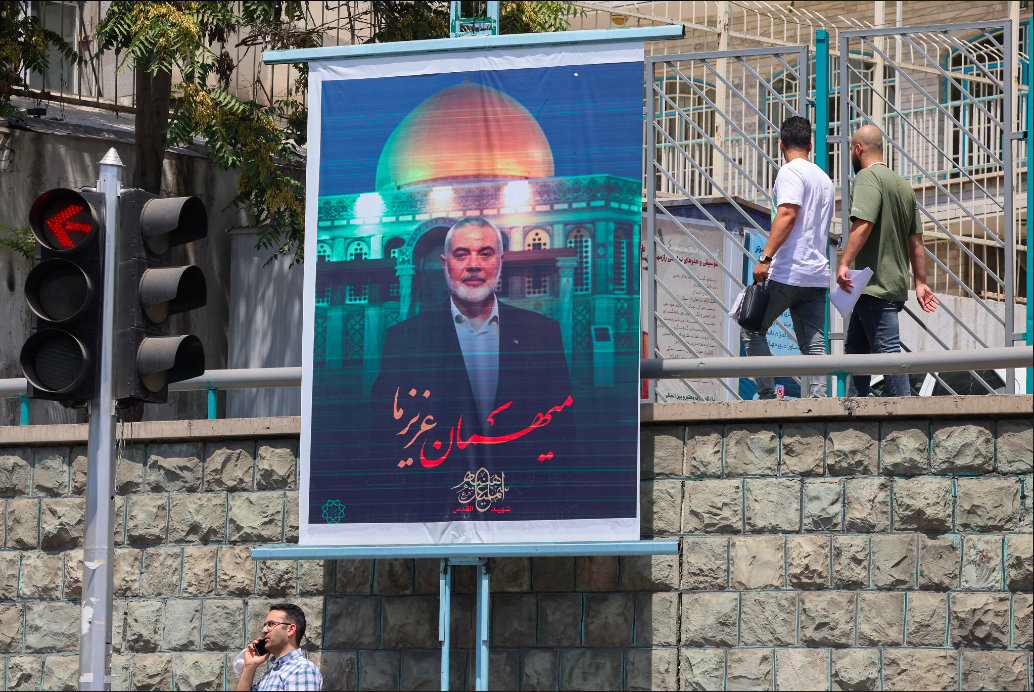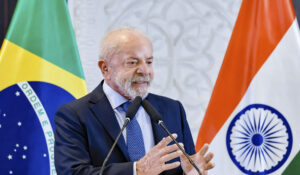
Published 08/13/2024 17:02
Iran has defied recent criticism from France, Britain and Germany over its actions against Israel, calling them “illogical and excessive”. Tensions have risen following the killing of Hamas leader Ismail Haniyeh in Tehran, with the Iranian government saying it does not need permission to retaliate.
On Monday, the leaders of France, Germany and the United Kingdom issued a joint statement calling on Iran and its allies to exercise restraint to prevent an escalation of violence and preserve ceasefire negotiations in Gaza. They also stressed the need for efforts to free the more than 100 hostages held by Hamas.
In response, Nasser Kanaani, the spokesman for Iran’s Foreign Ministry, accused Western nations of allowing Israel to commit “a myriad of international crimes” with impunity, referring to the war in Gaza. Kanaani argued that Iranian retaliation is a legitimate right in response to what they see as Israel’s aggressive actions. Hamas is threatening to boycott the latest round of ceasefire talks amid Iran’s imminent attack.
British Prime Minister Keir Starmer spoke to Iranian President Masoud Pezeshkian, urging restraint and warning that war benefits no one. However, Pezeshkian reiterated Iran’s position that retaliation is justified. Iranian President Ali Khamenei also expressed the need for “punitive responses against an aggressor,” the official IRNA news agency reported.
Meanwhile, Israel Army Radio reported that Israel has warned the US and European countries that any direct aggression by Tehran would result in an Israeli military response on Iranian territory. The move highlights Israel’s determination to retaliate against any Iranian attack, even in the absence of Israeli casualties.
The US Navy has sent warships and a submarine to the Middle East to bolster Israeli defenses, and intensive diplomatic efforts to dissuade Tehran from attacking are ongoing around the clock.
The death of Hamas political leader Haniyeh is almost two weeks old, making the wait even more excruciating for the Israeli people. In April, it was also two weeks before Iran launched its first direct attack on Israel after an Israeli airstrike on the Iranian consulate in Syria. The Israeli response and that of a US-led coalition intercepted most of the strikes.
With the risk of a wider war in the Middle East rising following the assassinations of Haniyeh and Hezbollah’s top military commander, Fuad Shukr, in Beirut, Iran has been engaged in intense dialogue with Western countries and the United States in recent days over ways to calibrate retaliation.
On Tuesday, Asghar Abbasgholizadeh, commander of the IRGC’s Ashura headquarters, said that while it may seem late for a response, Iran is continuing to press ahead and await Khamenei’s command. Reuters reported that a possible ceasefire agreement in Gaza could influence Iran’s decision on whether to retaliate directly against Israel. Iranian security sources have indicated that Iran, along with allies such as Hezbollah, is prepared for a direct strike if negotiations fail to make progress or if it perceives Israel as paralyzed.
Iran’s regional policy is set by the IRGC, which answers only to Khamenei, the country’s top authority. Iran’s new, relatively moderate president, Masoud Pezeshkian, has repeatedly reaffirmed Iran’s anti-Israel stance and its support for resistance movements across the region since taking office last month.
While it remains unclear whether Hamas will participate in the ceasefire negotiations, global powers continue to work to prevent a wider crisis in the region.
Source: vermelho.org.br

